The recent presidential election unveiled a political shift in California’s population. Many in the valley cast their ballots for Trump in 2024, making it pertinent to engage with conservative thoughts in order to navigate California’s future effectively.
On university campuses, it is admittedly uncommon to hear conservative perspectives articulated without a lens of bias or misconstruction. In response, an arguably controversial organization known as Turning Point USA (TPUSA) is growing roots at CSU Stanislaus.
The mission statement on the TPUSA website is “to empower informed civic and cultural engagement grounded in American exceptionalism and a positive spirit of action.” It explains they do so through “development of knowledge, skills, values and motivation, so they can meaningfully engage in their communities to restore traditional American values like patriotism, respect for life, liberty, family, and fiscal responsibility.”
What Is Turning Point USA?
Joseph (Joe) Archer, the TPUSA Field Representative for colleges in the Sierra Territory, shares, “The goal of the organization is to be educational and facilitate conversations by presenting viewpoints that are not generally discussed on campus.”
“We want people to think for themselves and not just blindly think what professors or admin tell them, or even what I think, but to get them to use their critical thinking skills,” Archer says.
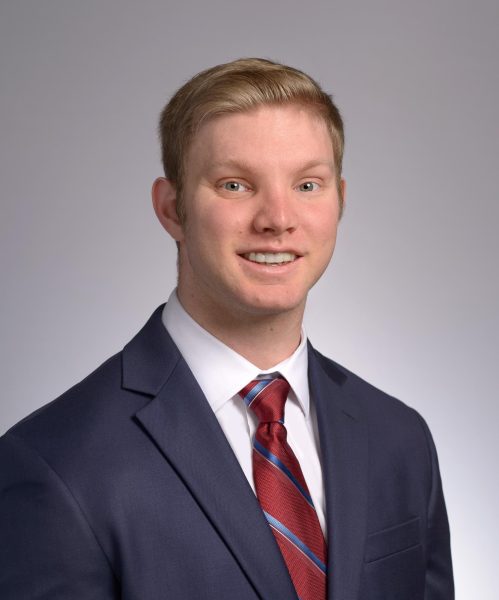
He shares that conservatives believe, “Every American – regardless of race, religion, and stuff – if they work hard and use their God-given talents they can pursue the American Dream. Conservatives believe in meritocracy, free market and principles like free speech.”
In spite of this, the organization has been faced with controversy. According to the Anti-Defamation League (ADL), they engage with “extremism, terrorism, and bigotry.” The ADL cites issues such as racism, homophobia, transphobia and the promotion of conspiracy theories.
Turning Point has articles on their website giving a voice to their perspectives on various topics from race relations to economics in their live feed. Consuming their media provides insight to how conservatives generally address political topics, allowing you to conclude whether or not their stances do, in fact, promote extremism, terrorism and bigotry.
Archer expressed that the political left and right have more in common than it seems, “We just have much different methods on how we wanna go about things,” he said. When asked to give an example of a point the left and right agree on, he stated, “The elites don’t have our best interest.”
This notion is illustrated in a 2016 Hoover Institution article by Victor Davis Hanson expressing conservative sentiments that are still relevant today, nearly 10 years later. It begs the question, “Amid a global backdrop of financial insecurity, spreading terrorism, instability in the Middle East, and vast population migrations, is it any wonder that we are witnessing reformation, revolution and revolt from the ground up?”
Without context, this could have been from any political article across the spectrum indicating common concerns with different observations and, thus, different solutions. There is clear discontent. There is a clear need for dialogue. If both sides have similar concerns, both sides need more opportunities to cultivate productive discussions.
According to Archer, Stan State can expect Turning Point “to provide chapter meetings, social events, and really just an avenue and a space for people to talk about the issues affecting our country that they don’t have the opportunity to talk about in class.”
On the topic of free speech Archer said, “During my time, I’ve spoken with both liberal and conservative students on campuses and, quite frankly, there are people who are afraid to share their viewpoints on both sides. We want to eliminate that toxic culture on campuses.”
He underscored this insight by stating, “To critically think about and discuss those ideas… for any academic institution, it’s very important that that exists.”
Student Voices
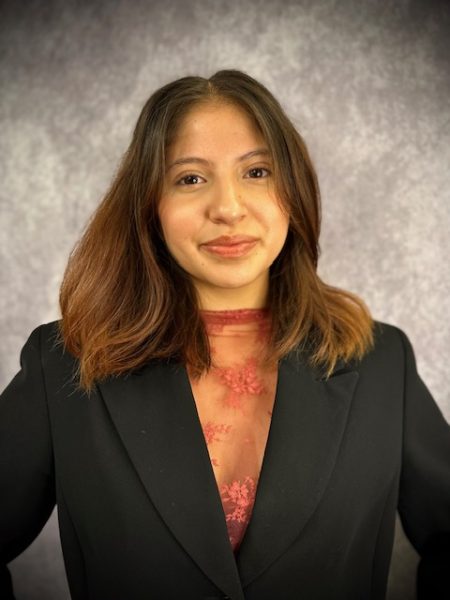
Amelia Velasquez Valencia, (Senior, Computer Science) states, “In the beginning, I joined TPUSA because I thought it was a good organization, at first. However, after more research, I disagree on some of their stances. I’m neither too liberal nor conservative. I’m just open to discussion.”
She expands that she has a disdain for the rhetoric in Turning Point’s branding. On their Youtube, in particular, there are rabble-rousing titles such as, “Charlie Kirk And Candace Owens Debunk ‘White Privilege’ | Angry Leftist Gets OWNED,”“Legal Immigrants CALL OUT America’s Biggest Crybabies” or “Charlie Kirk EXPOSES How CRT is a Marxist Power Grab.”
She sees their language as problematic for its capacity to wedge a deeper gap between parties. Ultimately, however, she believes both sides bring valuable points to the table and both sides have areas where they fall short.
From “snowflake” to “white supremacist” people ascribe labels to their opponents which diminish opportunities for fruitful discussions on topics of concern. She speaks to this notion saying,
“Both sides have these negative stereotypes, and this constant division just fuels more hatred, making it harder to find common ground,” she says.
“What I believe we need is to move beyond the two-party system and allow for voices with genuine knowledge, compassion and merit to rise up, regardless of their political affiliation. We need more honest, nuanced conversations, not just rhetoric designed to win elections or divide us further,” she concludes.
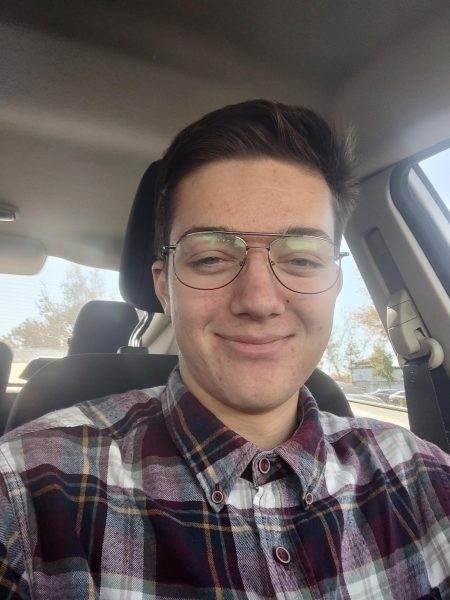
Wyland S. Hapgood (Sophomore, Political Science) is the president of Stan State’s non-registered TPUSA Chapter. He shared that he, “was raised in a very liberal household,” but identifies as, “socially conservative and economically libertarian,” adding that he was not always right-leaning.
He revealed that, while he respects his parents, they are opposed to conservative ideas and they consider conservatism to be “evil.” However, during COVID, Hapgood read about the Constitution and delved into, “the writings of Locke, Rothbard, and other thinkers.” Through these readings and his faith in Catholicism, he found himself aligning with conservative perspectives.
Hapgood points out that, prior to his attendance, “this campus did have a college Republican group that allowed for students with right-leaning opinions to express themselves. However, COVID came along and like the Roman Empire they collapsed. That is what I wish to bring back, another voice to this campus.”
If you’d like to cultivate dialogue on points of contention, get involved, be exposed to different perspectives or decide for yourself if this group is truly a threat to freedom and equality, Turning Point USA tables in the quad on Wednesdays and, according to Hapgood, “welcomes all kinds of perspectives,” so long as there is mutual respect and a willingness to engage civilly.

The organization placed fliers on campus, alerting students that Chloe Cole will be “Exposing the Trans Agenda” on April 9 at 11 a.m. in the Quad.
According to social media posts and faculty emails, there is talk about protests aiming to silence the “anti-trans hate” some on campus are expecting from Turning Point’s speakers.


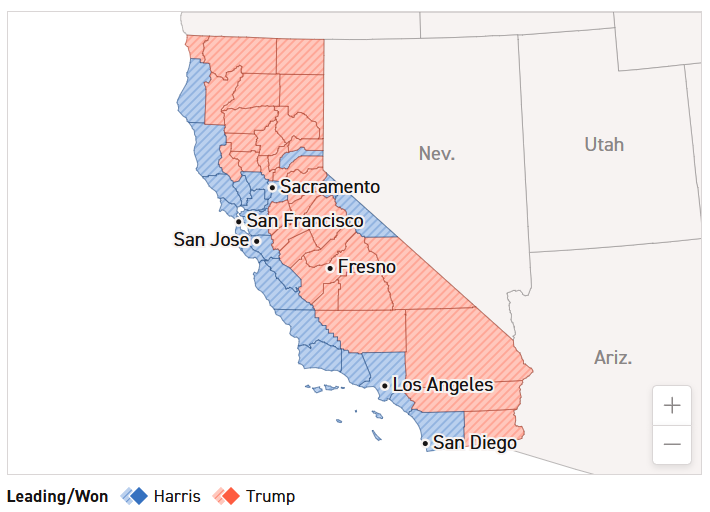

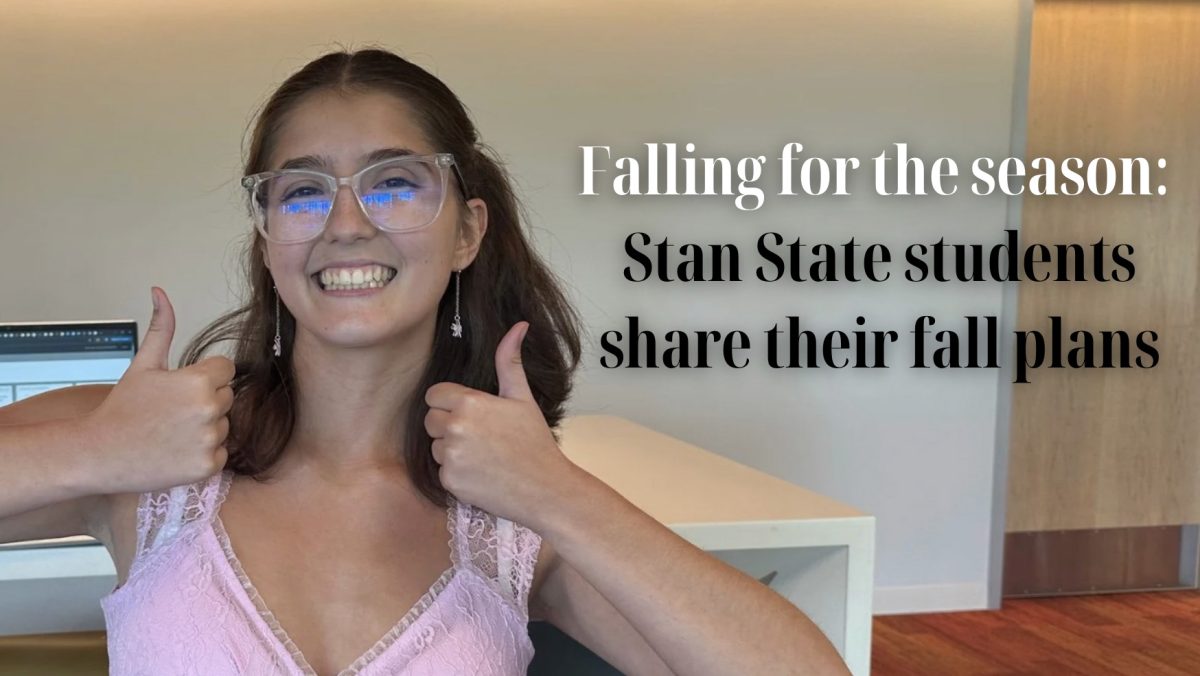
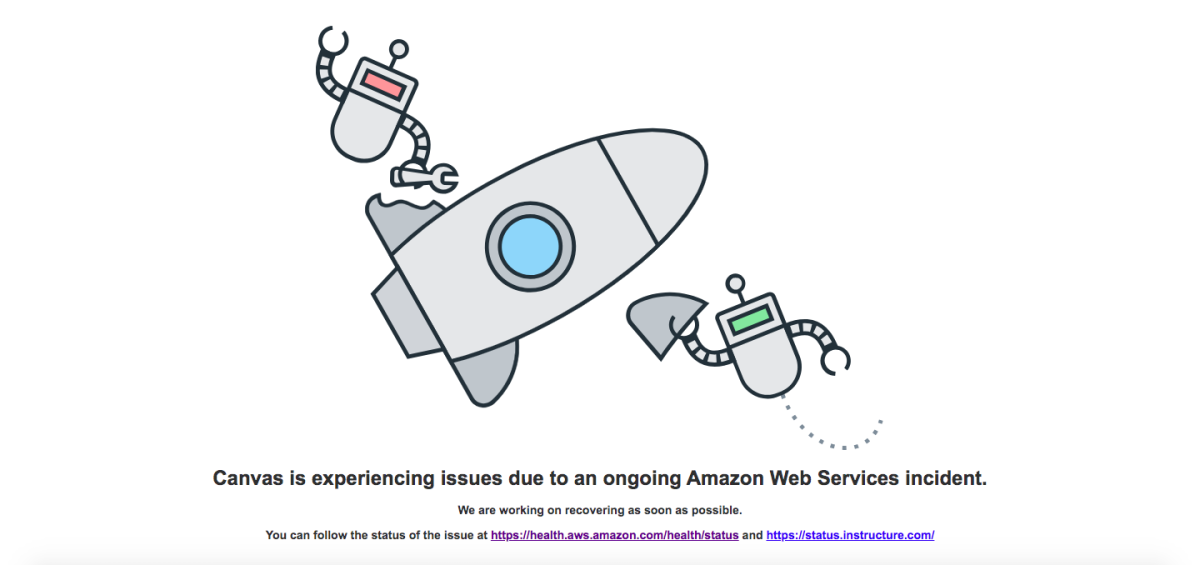

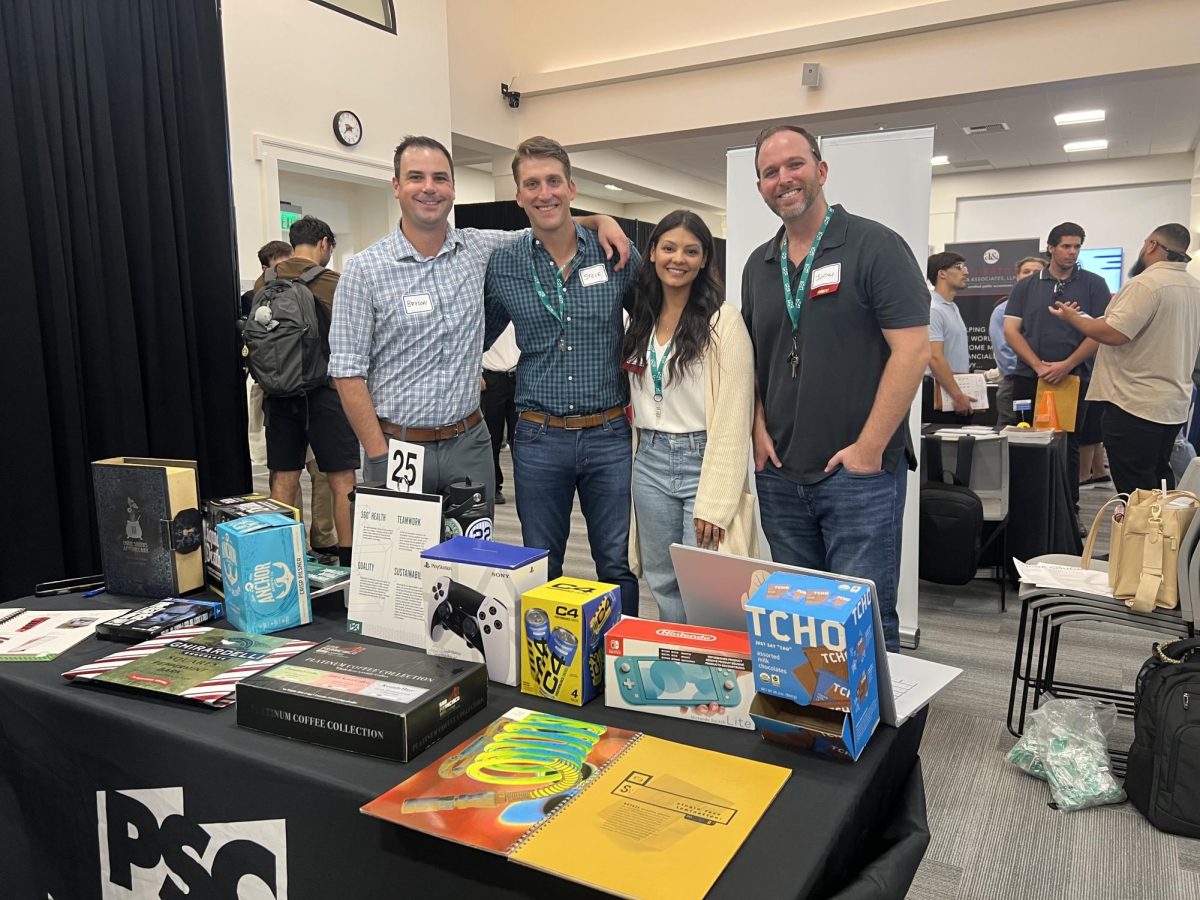
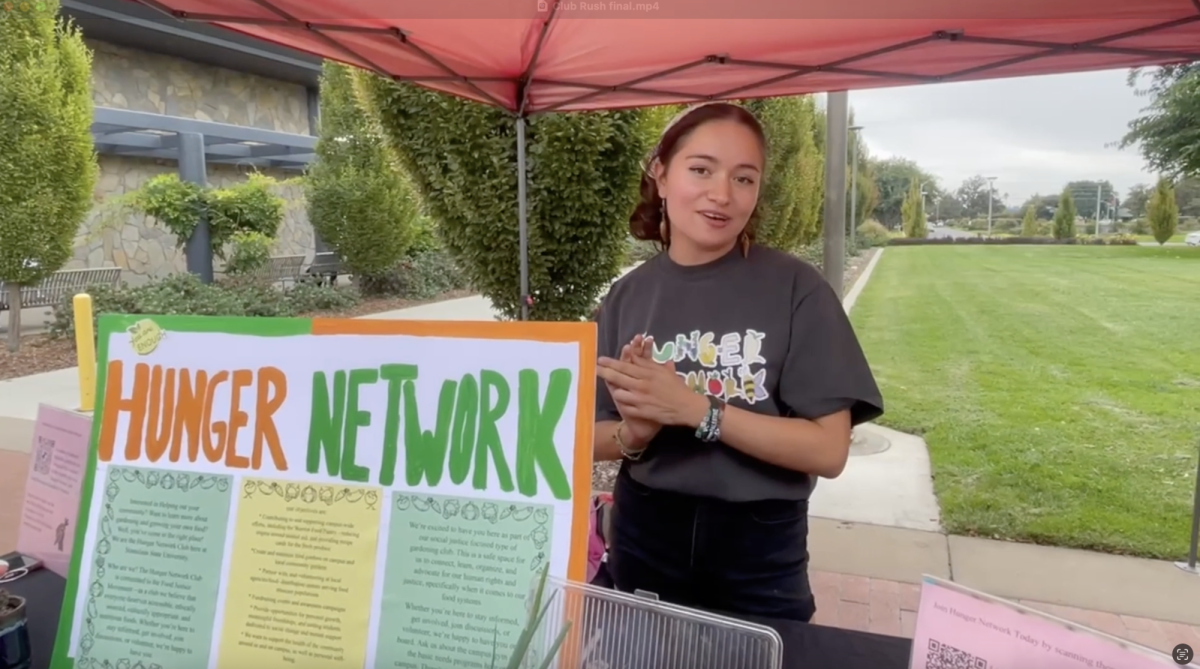
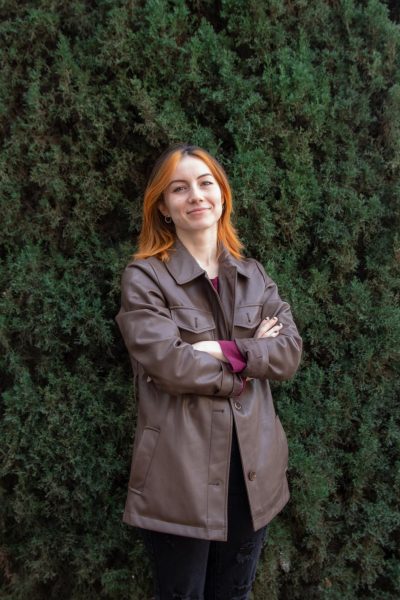
Brent Wheeler • Apr 9, 2025 at 8:44 pm
Conversations can be had, but only if all who converse wish to act in good faith. I applaud students who wish to seek wisdom and knowledge from many sources, as Uncle Iroh said, “It is important to draw wisdom from many different places. If you take it from only one place, it becomes rigid and stale. Understanding others, the other elements and the other nations will help you become whole.” This is what makes getting a college education so valuable.
However, TPUSA has shown time and time again that they do not wish to act in good faith, as evidenced by:
Their own toxic branding, aka “rabble-rousing”? (Let’s not sanitize things to the point of almost being legitimate);
Their rhetoric of “Exposing the trans agenda” which echos the homophobic “gay agenda” of past years;
Their funding from the billionaire and owner-class (they say in the article that they agree with the rest of us that the elites have to go, yet they are funded by them?); and
Their connections to the Republican Party, and all the vitriol that comes with that. (they are trying to appear moderate or nonpartisan in this article, I think, but this is clearly not true).
I seek knowledge and wish nothing more than peace, stability, and contentment for all people, everywhere, but I also won’t stand by when bad actors start popping up in opposition to marginalized people. I will be loud.
Mr. Archer, I know what you’re up to, I don’t like it. I hope one day you can go on to build something worthy and plant a tree in which others may enjoy its shade, instead of…..This.
Mr. Hapgood, if you truly want a place for good faith discussion, you are welcome to start a student organization that is not attached to a clearly partisan and elite funded antagonistic organization. By aligning with TPUSA, you delegitimize your viewpoints and immediately alienate people who belong to marginalized groups. As a seeker of knowledge, might I suggest reading “The Dawn of Everything” by David Graeber, since you say you are a fan of readings such as Locke. But please do not engage with me, as I do not believe you are acting in good faith.
Ms. Villa and other contributors, I am disappointed that you chose to sit on the window sill of the Overton Window as it slides further and further from any semblance of center with the way you wrote parts of this article. I understand it is important to be impartial to give all sides the same reverence, as it is textbook journalism, but please call things what they truly are. I’m not asking The Signal to become activist, I just ask not to give any credence to toxic rhetoric. Both sides are not equally the same, and I know you know this.
To my fellow friends who wish to defend marginalized groups, like trans people, I suggest you watch the series “The Right Wing Playbook” by Innuendo Studios on YouTube if you wish to understand their tactics so you can better prepare yourself and protect others (I consider this “required reading” haha).
I do not speak on behalf of the University, only on behalf of myself and on behalf of those who feel rightfully afraid to apeak up right now. Thanks for coming to my TED Talk, it’s not game over! Peace out, girl scouts! ☮️
Brent